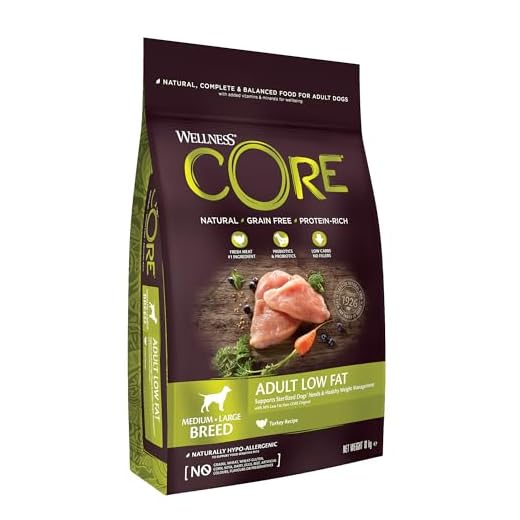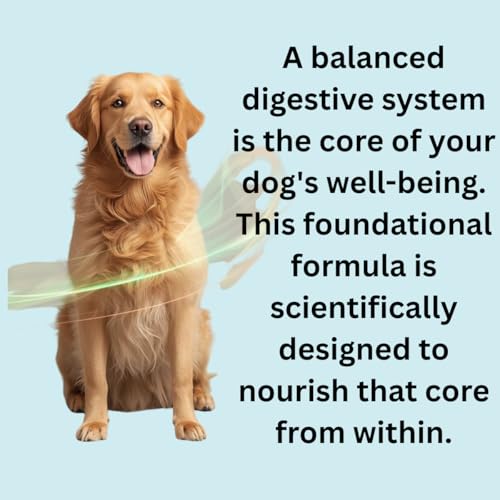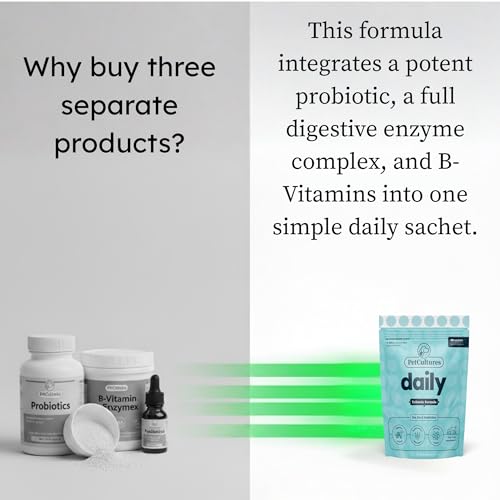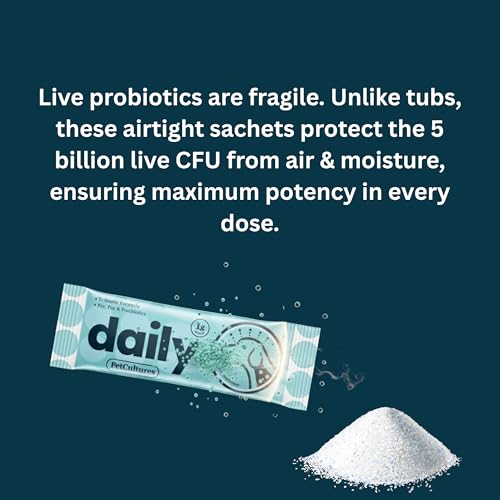








Yeast infections in canines can be a persistent and frustrating problem. Having dealt with this issue firsthand, I understand the importance of addressing it through proper nutrition. Finding the right diet can make a significant difference in managing and even preventing these infections. Through my own experiences and research, I’ve discovered some key elements that can help support our pets’ health effectively.
One of the main factors in combatting yeast infections is understanding what ingredients can exacerbate the condition and which ones can help alleviate it. For instance, high-carbohydrate foods can often worsen yeast problems. Instead, a diet rich in protein and low in simple sugars is usually more beneficial. Additionally, certain supplements and additives can aid in balancing the natural flora in a dog’s system, reducing the likelihood of yeast overgrowth.
In this article, I will share my findings on the best food choices to treat and prevent yeast infections. We’ll explore various types of dog food, examining their ingredients and how they contribute to overall health. I’ll also provide tips on what to avoid and what to look for when selecting a diet for your furry friend. By the end of this guide, you’ll have a better understanding of how to manage your pet’s yeast infections through informed dietary choices.
Effective Nutrition for Addressing Yeast Infections in Pets
When it comes to managing yeast infections in our furry friends, the right nutrition can make a significant difference. I’ve found that certain dietary choices help in reducing the symptoms and preventing recurrent issues. Selecting appropriate nourishment involves understanding the specific needs of your pet and what ingredients can alleviate their discomfort.
It’s crucial to focus on ingredients that minimise inflammation and support a healthy immune system. Through my own experience, I’ve seen how the right diet can lead to noticeable improvements in a relatively short period. Let me share some key points that I consider when choosing meals for pets with this condition.
Key Dietary Considerations
- Low Carbohydrate Content: Foods low in carbohydrates are essential because yeast feeds on sugars. Reducing carbohydrate intake can starve the yeast and prevent it from thriving.
- High-Quality Protein Sources: Opting for meals rich in high-quality proteins helps maintain overall health and supports the immune system.
- Avoiding Common Allergens: Identifying and eliminating common allergens such as wheat, corn, and soy can prevent further irritation and inflammation.
- Inclusion of Probiotics: Adding probiotics to the diet helps balance gut flora, which is crucial for controlling yeast overgrowth.
- Healthy Fats: Incorporating omega-3 and omega-6 fatty acids can reduce inflammation and promote skin health.
By paying attention to these dietary aspects, I’ve been able to manage my pet’s condition effectively. It’s all about creating a balanced and supportive diet that addresses the root causes of yeast infections.
Understanding Yeast Infections in Canines
Yeast infections are a common issue among our four-legged friends, and it’s essential to recognise the signs early to provide the best care possible. These infections often occur in the ears or on the skin, presenting as red, itchy areas that can cause significant discomfort. Understanding what triggers these infections can help in managing and preventing them effectively.
In my experience, diet plays a critical role in managing yeast overgrowth in pets. Certain ingredients in commercial pet food can exacerbate the problem, leading to frequent flare-ups. It’s important to be mindful of what we feed our pets and consider dietary changes that can alleviate their symptoms.
Identifying Symptoms and Causes
- Skin Irritation: Look for redness, itchiness, and unusual odours coming from your pet’s skin.
- Ear Infections: Watch for frequent head shaking, scratching at the ears, and discharge or foul smell.
- Allergies: Food allergies or intolerances can often contribute to yeast overgrowth.
Monitoring these symptoms and addressing them promptly with appropriate dietary adjustments and veterinary care can make a significant difference in your pet’s health. Understanding the relationship between diet and yeast infections can help you make informed decisions to keep your furry friend comfortable and healthy.
Identifying Symptoms of Yeast Overgrowth
When our furry companions are dealing with yeast overgrowth, it’s crucial to recognise the signs early on. This condition can cause considerable discomfort and can escalate if not addressed promptly. Through my experiences, I’ve noticed several telltale indicators that something isn’t quite right with my pet’s health.
First and foremost, there is often a noticeable change in the skin’s appearance and texture. It might become red, inflamed, or even develop a greasy feel. Another common sign is an unpleasant odour, which can be quite distinct and persistent despite regular bathing.
Recognising Specific Symptoms
- Itching and Scratching: Persistent itching, particularly in areas such as the ears, paws, and around the tail, is a strong indicator.
- Discharge and Odour: You may notice a brownish discharge or a strong, musty smell emanating from the affected areas.
- Ear Issues: Frequent head shaking or ear scratching can signal a problem, as yeast often thrives in moist, warm environments like the ears.
- Skin Changes: Redness, swelling, and thickening of the skin, sometimes with a greasy feel, are also common signs.
- Paw Licking: Excessive licking or chewing at the paws may indicate discomfort caused by yeast.
- Hair Loss: Patches of hair loss can occur around the infected areas due to constant scratching and irritation.
By keeping an eye out for these symptoms and consulting with a vet promptly, we can ensure our pets receive the care they need to stay healthy and comfortable.
Dietary Changes to Combat Yeast Infections
When tackling yeast overgrowth in pets, it’s crucial to make specific adjustments to their meals. I’ve found that certain ingredients and meal plans can significantly reduce the recurrence of these infections. By understanding what foods to include and what to avoid, you can help your furry friend maintain a healthier balance.
Initially, removing carbohydrate-rich foods is essential as they often contribute to yeast proliferation. Instead, focus on providing a diet that is low in sugars and starches. This change can create an environment less conducive to yeast growth.
Key Nutritional Adjustments
- Incorporate High-Quality Proteins: Opt for proteins from reliable sources like chicken, turkey, or fish. These proteins are not only easier to digest but also support overall health and immunity.
- Add Probiotics: Introducing probiotics into your pet’s meals can help restore a healthy gut flora, which is essential in controlling yeast levels. Probiotics can be found in certain yoghurts and supplements designed for pets.
- Use Anti-Fungal Foods: Ingredients like coconut oil, oregano oil, and garlic have natural anti-fungal properties. Including small amounts of these in their diet can help fight yeast from within.
Remember, always consult with your vet before making significant changes to your pet’s diet. Tailoring their meals to their specific needs can lead to better health outcomes and a happier pet.
Essential Ingredients to Seek in Dog Food for Yeast Issues
When searching for the right diet to help with yeast-related problems in pets, it’s crucial to focus on specific components that can support overall health and reduce symptoms. By understanding what to look for, you can make more informed choices that benefit your furry friend.
Identifying the right nutrients can significantly improve your pet’s condition, promoting a healthier balance in their system. Let’s delve into the key ingredients you should consider when selecting a suitable diet.
Beneficial Components
- Probiotics: Including probiotics in your pet’s diet can help maintain a healthy balance of gut bacteria, which is essential for reducing yeast overgrowth. Look for foods that contain natural sources of probiotics or have them added as supplements.
- Omega-3 Fatty Acids: These are known for their anti-inflammatory properties and can support skin health. Sources like fish oil or flaxseed can be particularly beneficial.
- Low-Glycaemic Carbohydrates: Reducing sugar intake is crucial in managing yeast issues. Opt for foods that use low-glycaemic carbs such as sweet potatoes or chickpeas instead of high-glycaemic grains.
- Coconut Oil: Known for its antifungal properties, coconut oil can be a valuable addition. It helps combat yeast internally and can also improve skin and coat health.
- Amino Acids: Ingredients rich in amino acids, like lean meats, are essential for overall health and can help strengthen your pet’s immune system.
Avoiding Ingredients That Aggravate Yeast Infections
When it comes to managing yeast infections in pets, the ingredients in their diet play a crucial role. I’ve learned that some components can significantly worsen the condition, so it’s essential to know which ones to avoid. This knowledge can help in selecting the right meals that support the health of our furry friends.
Through my experience, I’ve identified several key ingredients that should be excluded from a pet’s diet to help manage and prevent yeast infections. These ingredients often contribute to the problem rather than alleviate it, making it vital to scrutinise the contents of your pet’s meals carefully.
Ingredients to Exclude
- High-Carbohydrate Fillers: Ingredients such as corn, wheat, and soy are often used as fillers in pet meals. These high-carbohydrate components can feed yeast and exacerbate infections.
- Artificial Additives: Preservatives, colours, and flavour enhancers can trigger allergic reactions and worsen yeast problems. Opting for natural alternatives is always a better choice.
- Sugary Substances: Sugar and sweeteners like corn syrup can promote yeast growth. It’s crucial to ensure that the meals are free from added sugars.
- Dairy Products: Some pets have sensitivities to dairy, which can lead to digestive issues and aggravate yeast infections. Avoiding dairy can help in managing these conditions.
- Gluten: Many pets are intolerant to gluten, which can lead to inflammatory responses and worsen yeast issues. Gluten-free options are generally safer for pets prone to these infections.
Best Commercial Dog Foods for Yeast Infections
When it comes to selecting the right commercial dog food to combat yeast infections, it’s crucial to look for options that prioritize ingredients known to help manage yeast overgrowth. These foods typically contain specific components that support a healthy gut flora and immune system, which are essential in fighting off yeast infections.
Look for dog foods that are formulated with high-quality proteins, such as chicken, turkey, or fish. These proteins can help maintain your dog’s overall health and strengthen their immune system, making it more resilient to yeast infections.
- Grain-Free Formulas: Many grain-free dog foods are rich in legumes and peas, which can be beneficial for dogs with yeast infections, as they provide a lower glycemic index compared to grains.
- Probiotics: Foods that contain probiotics can help restore and maintain a healthy balance of gut bacteria, which is essential for managing yeast overgrowth.
- Limited Ingredient Diets: These diets can be helpful for dogs with allergies or sensitivities, as they typically contain a smaller number of ingredients, reducing the risk of triggering a yeast infection.
It’s always best to consult with your veterinarian before making any significant changes to your dog’s diet, especially if they are currently dealing with a yeast infection. Your vet can provide valuable insights and recommend the best course of action to help manage the infection effectively.
Effective Homemade Recipes for Treating Yeast Infections in Dogs
As a pet owner, I understand the importance of providing my furry friend with the best nutrition, especially when dealing with health issues like yeast infections. Homemade dog food can be a great option to control the ingredients and ensure they’re beneficial for my dog’s condition.
One effective recipe I use is a combination of lean protein like turkey or chicken, mixed with healthy fats such as coconut oil or olive oil. These ingredients help maintain a healthy coat and skin, while also providing essential nutrients.
- Turkey and Vegetable Stew: Cook lean ground turkey with a mix of dog-safe vegetables like carrots, green beans, and broccoli. Add a tablespoon of coconut oil for its antifungal properties.
- Chicken and Sweet Potato Mash: Boil chicken breasts and shred them. Mash cooked sweet potatoes and mix them with the shredded chicken. Add a drizzle of olive oil for added health benefits.
These homemade recipes not only provide a healthy alternative to commercial dog food but also help in managing and treating yeast infections in dogs.
Supportive Supplements for Yeast Infection Treatment
When dealing with yeast infections in dogs, certain supplements can play a crucial role in supporting their treatment. One key supplement is probiotics, which help restore the balance of good bacteria in the gut and reduce yeast overgrowth.
Another beneficial supplement is omega-3 fatty acids, which have anti-inflammatory properties and can help alleviate skin irritation and itching associated with yeast infections. Additionally, digestive enzymes can aid in the breakdown of food, making nutrients more available and supporting overall gut health.
- Probiotics: These supplements contain beneficial bacteria that can help restore the natural balance in the gut, reducing yeast overgrowth.
- Omega-3 Fatty Acids: These have anti-inflammatory properties that can help reduce skin irritation and itching.
- Digestive Enzymes: These can aid in the breakdown of food, making nutrients more available and supporting overall gut health.
Feeding Guidelines for Dogs with Yeast Infections
When feeding a dog with a yeast infection, it’s crucial to focus on a diet that supports the immune system and helps combat the overgrowth of yeast. One key aspect is to avoid foods that are high in carbohydrates, sugars, and grains, as these can fuel yeast growth.
To help alleviate yeast infections, consider a diet rich in proteins and low in carbohydrates. This can help reduce the food sources available for yeast to thrive. Additionally, adding probiotics to your dog’s diet can help restore the balance of good bacteria in their gut, which can be beneficial in fighting yeast overgrowth.
- Choose a dog food that is specifically formulated for dogs with yeast infections.
- Look for foods that are grain-free and low in carbohydrates.
- Incorporate probiotics into your dog’s diet, either through supplements or probiotic-rich foods.
- Consider rotating proteins to prevent food sensitivities and provide a variety of nutrients.
- Consult with your veterinarian to determine the best diet plan for your dog’s specific needs.
Tips for Preventing Future Yeast Infections
Preventing yeast infections in your dog is possible with a few simple strategies. Here are some tips to keep your furry friend healthy and happy:
- Proper Diet: Feed your dog a balanced diet rich in nutrients to support their immune system. Avoid foods high in sugars and carbohydrates, as they can contribute to yeast overgrowth.
- Regular Cleaning: Keep your dog’s ears, paws, and skin folds clean and dry. Moisture and warmth create an ideal environment for yeast to thrive.
- Regular Exercise: Ensure your dog gets enough exercise to maintain a healthy weight and reduce the risk of skin issues that can lead to yeast infections.
- Supplements: Consider adding probiotics to your dog’s diet to promote a healthy balance of gut bacteria, which can help prevent yeast overgrowth.
- Veterinary Check-ups: Schedule regular check-ups with your vet to catch any potential health issues early and address them promptly.
By following these tips, you can help prevent future yeast infections in your dog and keep them happy and healthy for years to come.
Best Dog Food To Treat Yeast Infections
Features
| Part Number | 10754 |
| Model | 10754 |
| Size | 10kg |
| Language | French |
Features
| Part Number | HARRGFSC-12 |
| Model | HARRGFSC-12 |
| Release Date | 2024-01-01T00:00:01Z |
| Size | 12 kg (Pack of 1) |
| Price history for Harringtons Superfoods Grain Free Dog Food | |
|---|---|
|
Latest updates:
|
|
Features
| Part Number | MX-001 |
| Model | SEPRO-001 |
| Warranty | 90 days |
| Color | Light Blue |
| Language | English |
Features
| Size | Single Pack |
| Price history for NutriPaw All-Itch Immunity Treats | |
|---|---|
|
Latest updates:
|
|
Features
| Part Number | 0000 |
| Model | 0000 |
| Warranty | 45 Day Money Back |
| Size | Single Pack |
| Price history for NutriPaw Digestive Treats for Dogs | |
|---|---|
|
Latest updates:
|
|
Features
| Part Number | GR00142212 |
| Model | 195511/3854 |
| Color | transparent |
| Release Date | 2015-03-30T00:00:01Z |
| Size | 10 kg (Pack of 1) |
| Language | English |
| Price history for Pooch & Mutt Health and Digestion Dog Food | |
|---|---|
|
Latest updates:
|
|
Features
| Is Adult Product | |
| Release Date | 2025-05-17T00:00:01Z |
| Language | English |
| Number Of Pages | 213 |
| Publication Date | 2025-05-17T00:00:01Z |
Q&A:
What is the best dog food to treat yeast infections?
The best dog food to treat yeast infections is one that is low in carbohydrates and sugars, as yeast thrives on these ingredients. Look for dog foods that are high in protein and fat, with limited or no grains or starches.
Can a change in diet help treat my dog’s yeast infection?
Yes, a change in diet can help treat your dog’s yeast infection. Switching to a dog food that is low in carbohydrates and sugars can help starve the yeast and promote healing.
What ingredients should I look for in dog food to treat yeast infections?
Look for dog foods that are high in quality proteins like chicken, turkey, or fish, and healthy fats like omega-3 fatty acids. Avoid ingredients like corn, wheat, and soy, as these can promote yeast growth.
Are there any supplements that can help treat yeast infections in dogs?
Yes, supplements like probiotics can help restore the balance of good bacteria in your dog’s gut, which can help fight off yeast infections. Omega-3 fatty acids can also help reduce inflammation and support your dog’s immune system.
How long does it take to see improvement in my dog’s yeast infection with a new diet?
The time it takes to see improvement in your dog’s yeast infection with a new diet can vary. Some dogs may show improvement within a few weeks, while others may take longer. It’s important to stick to the new diet plan and monitor your dog’s symptoms closely.















































